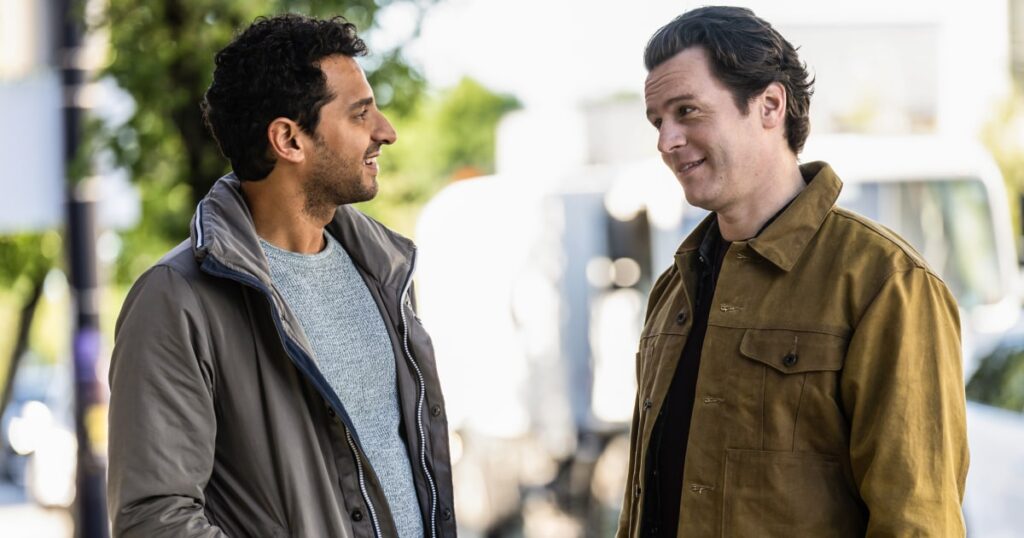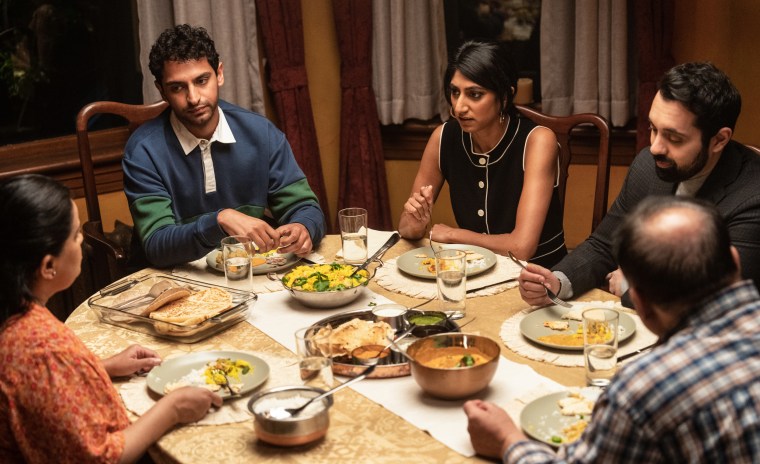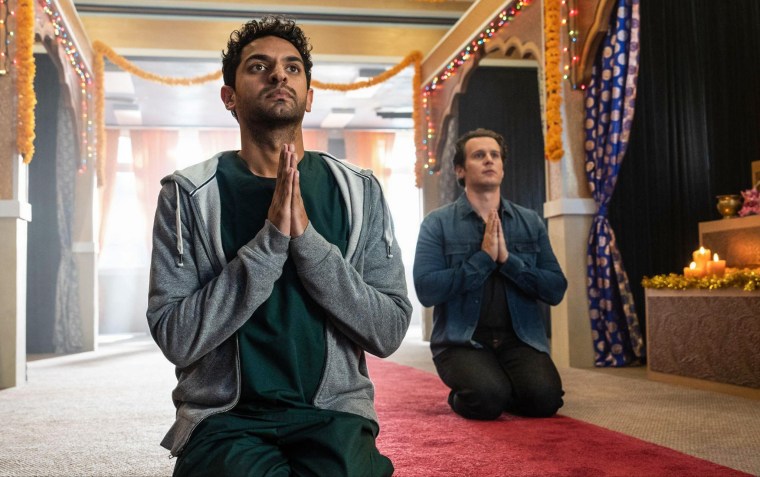
The new film, “A Nice Indian Boy” delivers a narrative about acceptance and love that’s told through the unique lens of a mixed-race, same-sex relationship.
“A Nice Indian Boy” follows the life of a shy, timid doctor, Naveen Gavaskar (Karan Soni), who meets a white freelance photographer named Jay Kurundkar (Jonathan Groff), whose Indian parents adopted him in the U.S. and introduced him to their culture.
As the film progresses, emotions run high and a series of comical misunderstandings and emotional revelations threaten to tear Naveen’s family apart. The movie was released in theaters last Friday.
Actor Karan Soni told NBC Asian America that the film harkens back to 2002’s “My Big Fat Greek Wedding,” but told from a completely different point of view, including who the characters are and what they look like.
“It’s a complete revamp of it, just because of the point of view from which the story is being told,” Soni said.

The rom-com, directed by filmmaker Roshan Sethi and produced by Justin Baldoni’s Wayfarer Studios, the studio behind last summer’s blockbuster “It Ends With Us,” follows a traditional rom-com template. At the start of the film, Naveen and Jay meet at a Hindu temple, followed by a predictable break-up in the second act, and conveniently patch things up before their big, fat Indian wedding.
“We want as many people as possible to watch it,” Sethi told NBC Asian America. “It’s for everybody.”
Sethi is also no stranger to directing what he calls a “South Asian movie” and has previously directed two other films, including “7 Days” and “World’s Best,” both of which starred South Asian leads. He was also a co-creator on Fox’s medical-drama “The Resident”.

“I have a lot more to say than just reflecting on the South Asian experience, but I would never trust executives or agents to recognize that,” Sethi added.
Outside of being a film with a South Asian lead, “A Nice Indian Boy” is unique because it deals with same-sex relationships in a South Asian household, an issue that’s typically brushed under the carpet, says professor Rovel Sequeira of the University of Michigan’s Department of Women and Gender Studies.
In one scene, Naveen’s father tells both his son and Jay, who has come over to their house for the first time, that he has played a specific television channel to make them feel more comfortable.
“We played this gay TV for you,” Naveen’s father says.
“I think films like ‘A Nice Indian Boy’ can be useful to a degree since they might help queer kids in communicating about their sexualities with their families,” Sequeira said. “It’s also refreshing to watch films that put the responsibility for acceptance of queer children on South Asian parents and the larger household rather than on queer individuals themselves.”
 Latest World Breaking News Online News Portal
Latest World Breaking News Online News Portal






